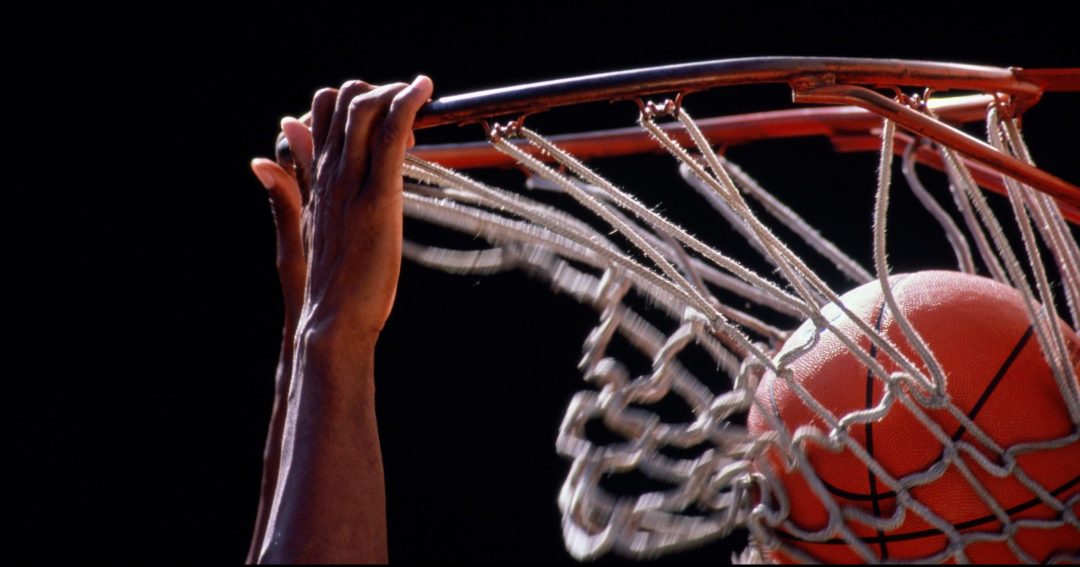The Top 10 Bracket Busters in Tourney History
Blog: The Tibco Blog
Reading Time: 5 minutes
How Data Science Can Help You Pick Winners
The single-loss format of the NCAA Men’s Basketball Tournament means anything can (and does) happen. Every year, fans anticipate a “bracket-busting” team to exceed expectations and ruin any chance they might have of winning their office pool. Upsets are sometimes a bigger story than the title contenders themselves, especially when it happens to a school you picked to cut down the nets.
To help you accurately predict the winners and losers of the largest basketball tournament of the year using TIBCO’s industry-leading data analytics software, join this free virtual webinar on March 16. (For the last two years, TIBCO customers ranked in the 99th percentile with their brackets).
In the meantime, here is a list of the top 10 bracket busters in tourney history.
10. 1979 — University of Pennsylvania Quakers
It’s not often that an Ivy League school plays the role of Cinderella during the tournament, which makes 1979 seem that much more memorable. In the second round of the 1979 tournament, the top-seeded North Carolina Tar Heels lost to the ninth-seeded Penn Quakers, 72-71. Penn’s bracket-busting ways continued as it went on to reach the final round, losing to the eventual national champion Michigan State, 101-67.
9. 2013 — Florida Gulf Coast University Eagles
In its first tournament appearance, Florida Gulf Coast introduced the world to “Dunk City”. The fifteenth-seeded Eagles upset second-seeded Georgetown in the first round of the 2013 tournament. The team proceeded to upset seventh-seeded San Diego State to become the first 15-seed to reach the third round. The feat was even more impressive considering FCCU was only in its sixth Division I season overall and second season with Division I postseason eligibility.
8. 1991 — Duke Blue Devils
It’s hard to consider a second-seeded team to be a bracket buster, especially when that team is Duke. However, Coach K’s squad wasn’t always the powerhouse program that fans love to hate. In 1991, top-seeded UNLV was the defending national champion entering the final round on a 45-game winning streak. UNLV surprisingly lost the game, 79-77, marking the start of Duke’s rise to dominance. The Blue Devils went on to win the first of its five national championships by beating Kansas in the championship, 72-65. Meanwhile, UNLV has only won one tournament game almost 30 years later.
7. 2006 — George Mason Patriots
While eleventh-seeded teams are always a popular pick to win in the early rounds, it’s rare to see many brackets taking them to the final round. In 2006, the George Mason Patriots entered the tournament as an eleventh-seed. The Patriots made its presence known by defeating sixth-seeded Michigan State Spartans, the defending champion North Carolina Tar Heels, and then top-seeded UConn before falling to eventual national champion Florida, 86-84, in the final round. Brackets everywhere felt the wrath of the George Mason Patriots.
6. 2012 — Lehigh Mountain Hawks
In 2012, the second-seeded Duke Blue Devils were a popular selection to win it all. Future NBA All-Star, C.J. McCollum, helped bust brackets everywhere by leading the Lehigh Mountain Hawks to a 75-70 upset in the first round. Lehigh fell to Xavier in the next round, but the victory over Duke was only the sixth time in NCAA Tournament history that a fifteenth-seed defeated a second-seed. Oddly enough, it was the second time during the 2012 tournament, as fifteenth-seed Norfolk State defeated second-seed Missouri earlier the same day.
5. 1991 — Richmond Spiders
The Richmond Spiders made history in 1991. For the first time since the tournament’s expansion to 64 teams in 1985, a fifteenth-seed defeated a second-seed. Richmond upset the Jim Boeheim-coached Syracuse team, 73-69. With over 25 million viewers, it still stands as one of the most-watched first-round games ever. Richmond lost in the next round to the Temple Owls, 77-64, but their first-round upset is considered by some to be the “original bracket buster”.
4. 1983 — North Carolina State Wolfpack
The Houston Cougars, known as “Phi Slama Jama”, came into the 1983 tournament as heavy-favorites with star Hakeem Olajuwon leading the way. Even with a first-round bye, the well-rested Houston squad was unable to put away the bracket-busting NC State Wolfpack in the final round. The sixth-seeded Jim Valvano-led Wolfpack upset Houston, 54-52, to win the 1983 national championship. The ending of that game is one of the most famous in college basketball history, with a buzzer-beating dunk by Lorenzo Charles off a desperation shot from 30 feet out by Dereck Whittenburg.
3. 2016 — Middle Tennessee State Blue Raiders
In 2016, a total of 13.02 million brackets were entered on ESPN.com, and 22.3 percent of them had Michigan State winning it all. Middle Tennessee State, a team that went 13-5 in Conference USA and lost non-conference games to the likes of Georgia State, Murray State, and South Dakota State, were not expected to make any noise. Fifteenth-seeded Blue Raiders got out to a 15-2 lead and never trailed, beating the second-seeded Spartans 90-81. Middle Tennessee State would go on to lose to Syracuse in the next round but brackets (and Spartans fans) everywhere were never the same.
2. 1985 — Villanova Wildcats
The eighth-seeded 1985 Villanova Wildcats are still the lowest-seeded team to ever win the national championship. After beating ninth-seeded Dayton, top-seeded Michigan, the (Len Bias-led) fourth-seeded Maryland Terps, and then Dean Smith’s second-seeded North Carolina squad, the Wildcats found themselves playing for the championship. The game, held on April 1, 1985, which led some fans to think that the final result might have been an April Fool’s joke. Villanova upended Patrick Ewing and top-seeded Georgetown by missing one shot the entire second half. It was a 66-64 upset that some consider being the biggest in history.
1. 2018 — UMBC
Heading into the 2018 NCAA Tournament, top-seeded teams were on a 133 game winning streak against No. 16-seeded teams, spanning 33 years. Since the expansion to 64 teams, a sixteenth-seeded team had never won. Over 16.65 percent of submitted brackets picked Virginia to win the championship—the second-highest percentage for any team. Sixteenth-seeded UMBC squad only received a 0.15 percent chance to win the title, yet, it busted most brackets with a shocking 74-54 win over the top-seeded Virginia Cavaliers. UMBC lost to Kansas State in the second round but its mark had been made and still stands today as the only 16-seed to ever beat a top-seed.
Turn your bracket from fingers-crossed hunches into analytics-backed forecasting with TIBCO Spotfire software. Join TIBCO at Ditka’s Oakbrook Terrace at 4:30 pm CDT on Monday, March 16 to see how YOU can accurately predict the winners (and avoid the bracket busters) this year—all with TIBCO’s industry-leading data analytics software.
Last year, TIBCO customers had a 95 percent accuracy rate, and a majority of last year’s attendees won their office pools. That means cold, hard cash in your pocket. So come ready to make your predictions, compare your bracket with other attendees, and gain last-minute tips to improve your chances of winning this season.
If you’re unable to attend the cocktail hour networking session on March 16, you can still tune in to our live, interactive webinar on March 16 at 2:30 PM CST, where we will share more game-winning tips on CRUSHING this year’s bracket!
Leave a Comment
You must be logged in to post a comment.








